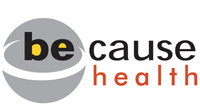
Simple anwsers to complex questions do not exist. How then to move beyond the control panel and provide meaningful answers to complexity? These questions have triggered a collective reflection and a conference seminar entitled “Health-y answers to complexity: Are we able to move beyond the control panel?”. Established through the health sector and more particularly through the international cooperation, the group proposes nevertheless a pluridisciplinary reflection which goes beyond the specific challenges of one sector. For that reason, the working group is open to everyone who is interested in addressing complexity.
The complexity group works around three pillars:
1. Exchanging, sharing and distributing the knowledge on the concepts but especially on the practical aspects of addressing complexity. These exchanges and sharing possibilities aim to facilitate the practical implementation of these approaches of addressing complexity by:
- Deepening the knowledge of key ideas on the new “complexity” paradigm and its consequences for practical experiences.
- Sharing documents, experiences and competences.
- Spreading information (through the website, seminars, etc.).
- Documenting the experiences of the field.
- Supporting the reflection exercise with specific tools for different organisations.
2. Discussing the expertise to promote a reflection taking into account elements on complexity from different fields (international cooperation, politics, interventions, etc.). This should be about integrating the concepts and tools originating from the science on complexity from all relevant fields, especially those addressing health systems.
3. In the long term, this working group’s aim is to connect with other networks on this theme outside the health sector and at international level to:
- give visibility to the working group and its work
- rationalise its outcomes
- form relationships to create a vast and more solid network.
 MORE
MORE
